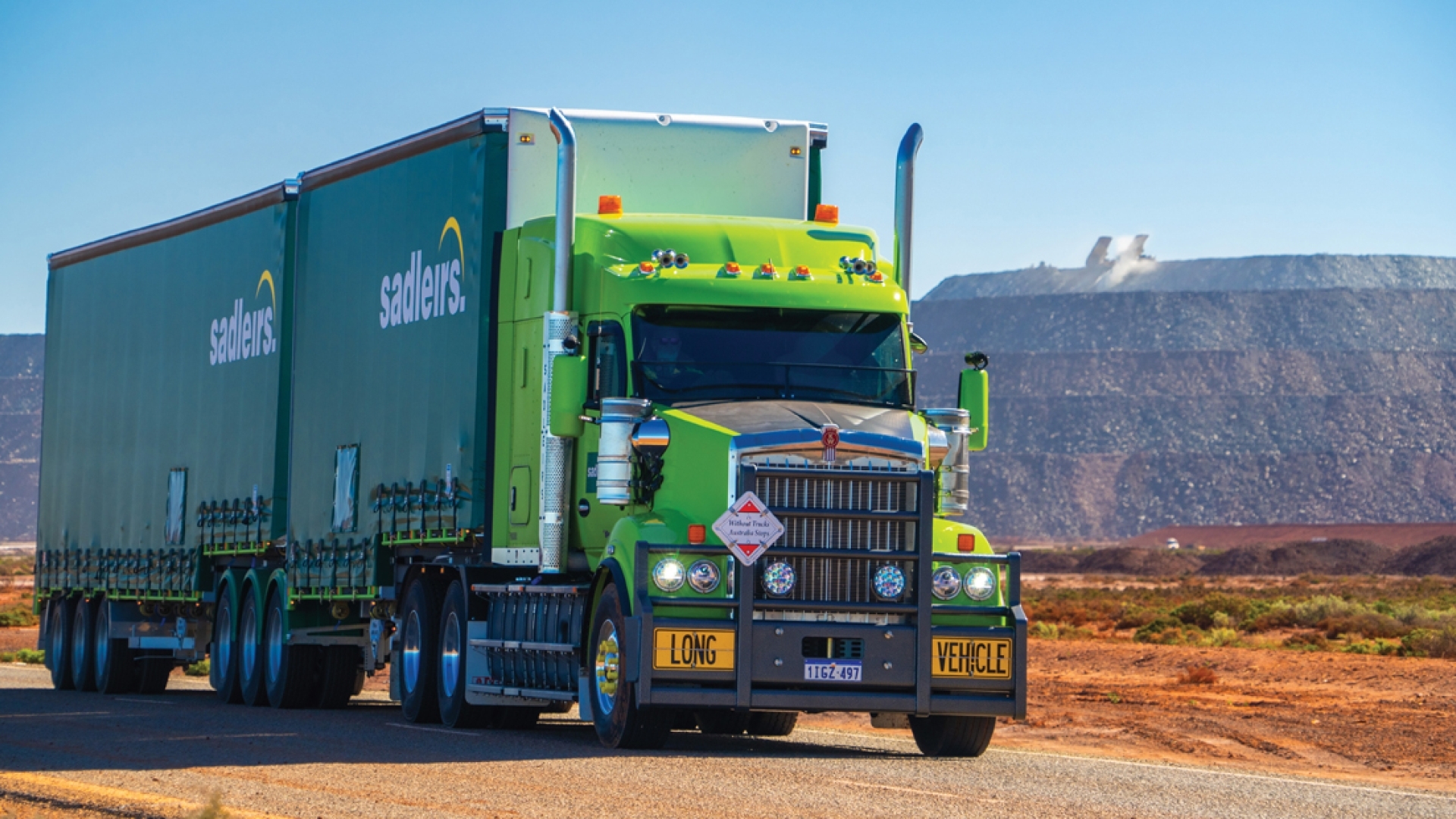Cummins: Partner of the Week Scholz Bulk Haulage (SBH), a family-owned business in Wodonga, NSW,...
ALRTA Weekly Update: July 11
Sadleirs hits top gear
Article below Director Update is supplied by Industry Partner, Cummins. The Article highlights the research and development going into Euro 6 Cummins X15 engines.
Executive Director Update
Welcome everyone to the weekly news
Effluent, Biosecurity, and the urgent need for Infrastructure Reform
This week, the closure of the Geelong truck wash made headlines—and rightly so. The Victorian Farmers Federation (VFF) expressed frustration at the lack of support for critical rural infrastructure, underlining the operational and environmental strain this imposes on livestock transporters and the broader supply chain.
But this isn’t just a livestock issue.
Bulk commodity carriers—integral to Australia’s grain, feed, and food sectors—are also caught short. Operators moving between sensitive loads like grain, fertiliser, and feed must clean vehicles between loads to meet biosecurity, contamination, or export standards. Yet across regional Australia, there are few, if any, compliant public facilities available to meet this demand. Apparently, a broom is sufficient.
Meanwhile, in South East Queensland—home to one of Australia’s busiest livestock processing zones—effluent spill on public roads is becoming a daily hazard. In Warialda, NSW, drivers are facing curfews at truck wash facilities that force overnight
delays, compounding fatigue risks and stalling productivity.
At the same time, the ongoing consolidation of Australia’s saleyard network is stripping away another layer of critical infrastructure. As the industry centralises through larger, fewer yards, the number of accessible truck wash facilities is also declining. This is quietly undermining our national biosecurity posture, especially in areas with high freight intensity and animal movement.
A fragile line of defence against disease
What is even more concerning is how ill-equipped we are to respond to a national livestock standstill event—such as an outbreak of Foot and Mouth Disease (FMD) or Lumpy Skin Disease. These are no longer abstract threats. Industry and government alike frequently describe such an outbreak as “not if, but when.”
In the event of a standstill or regional containment order, the requirement to wash down and disinfect vehicles between every load would become immediate and absolute.
And yet, our current wash infrastructure — scarce, aging, and regionally patchy — would be overwhelmed within hours. Without urgent investment, we are simply not prepared. This vulnerability affects every part of the supply chain — from producers and processors to bulk and livestock carriers. If we expect professional standards from transport operators, then we must provide the essential infrastructure to match those expectations, especially when national biosecurity hangs in the balance.
Encouraging green shoots of reform
Some jurisdictions are beginning to act. In Victoria, the Livestock and Rural Transporters Association of Victoria (LRTAV) has developed a forward-thinking master plan for a multi-purpose rest area in Geelong. The concept combines a truck wash facility with amenities for driver rest and queue management near the Port of Geelong — echoing the recent Western Sydney rest stop model, but going further by addressing hygiene infrastructure needs. This is the kind of practical thinking government must engage with.
Victoria is also trialling new governance. A truck wash steering committee, chaired by Agriculture Victoria’s Biosecurity Division, is exploring strategic responses. In South East Queensland, major processors are engaging with ALRTA to develop a regional
master plan. In South Australia, planning is underway to expand the effluent dump point network across key freight corridors.
A Whole-of-Chain Solution
What’s becoming clear is that no single solution - or single player - can fix this. Last week, ALRTA’s General Manager of Policy and Strategy, Ashley Mackinnon, highlighted the scale of work already underway to bring processors, saleyards, and industry leaders
into one conversation. The message is simple: teamwork is non-negotiable. A whole-of-chain mindset is critical to building infrastructure that can cope with normal operating demands — and crisis situations alike.
ALRTA is using this mindset to develop a national supply chain solution — one that serves the needs of both livestock and bulk carriers, prioritises safety, hygiene, and traceability, and delivers real resilience in the face of future threats.
We’ll have more to share soon.
Until next week, stay safe.
Anthony
Together, we are stronger.
Sadleirs hits top gear

A fleet of new Kenworths powered by Euro 6 Cummins X15 engines is the key to Sadleirs' efficient triple roadtrain operations in Western Australia.
There's a strong sense of history at Sadleirs, one of Australia's most established logistics providers.
Family-owned, the company has an incredibly long history dating back to 1829. In fact, it is the oldest family-owned logistics company in Australia.
Sadleirs traces its origins to Lionel Samson & Son, by two brothers who established a merchant business in Fremantle on their arrival in Western Australia in 1829. In 1936, the company acquired RC Sadleir, which had opened in 1895.
Save the dates for 2025
- LRTAV State Conference. 8-9 August 2025, Move Museum, Shepparton, VIC - MORE INFO HERE
- LRTAWA State Conference. 22-23 August, 2025. The Vines Resort, Swan Valley - MORE INFO HERE
.jpeg?width=1773&height=2087&name=BPP_Rlbg%20(1).jpeg)
%20(002)%20(1)%20(1).jpg?width=7000&height=1766&name=LMB%20+%20BYRNE%20(1)%20(002)%20(1)%20(1).jpg)


.jpg?width=2480&height=1526&name=NTI_Logo_RGB%20(3).jpg)
%20(1).jpg?width=8000&height=2092&name=PACCAR_Dealers_Logo_Colour%203MB%20(1)%20(1).jpg)
%20(1).png?width=2000&height=583&name=RepcoCommercial%5BPOS%5D%20(2)%20(1).png)

%20(1).jpg?width=2000&height=493&name=TM%20Logo%202000px%20(1)%20(1).jpg)
-1.png?width=3720&height=3784&name=ALRTA_LOGO_%20CMYK-PNG%20(1)-1.png)
%20Scholz.jpg?height=200&name=B)%20Scholz.jpg)
.png?height=200&name=KW_Legacy_1200x628px%20(1).png)